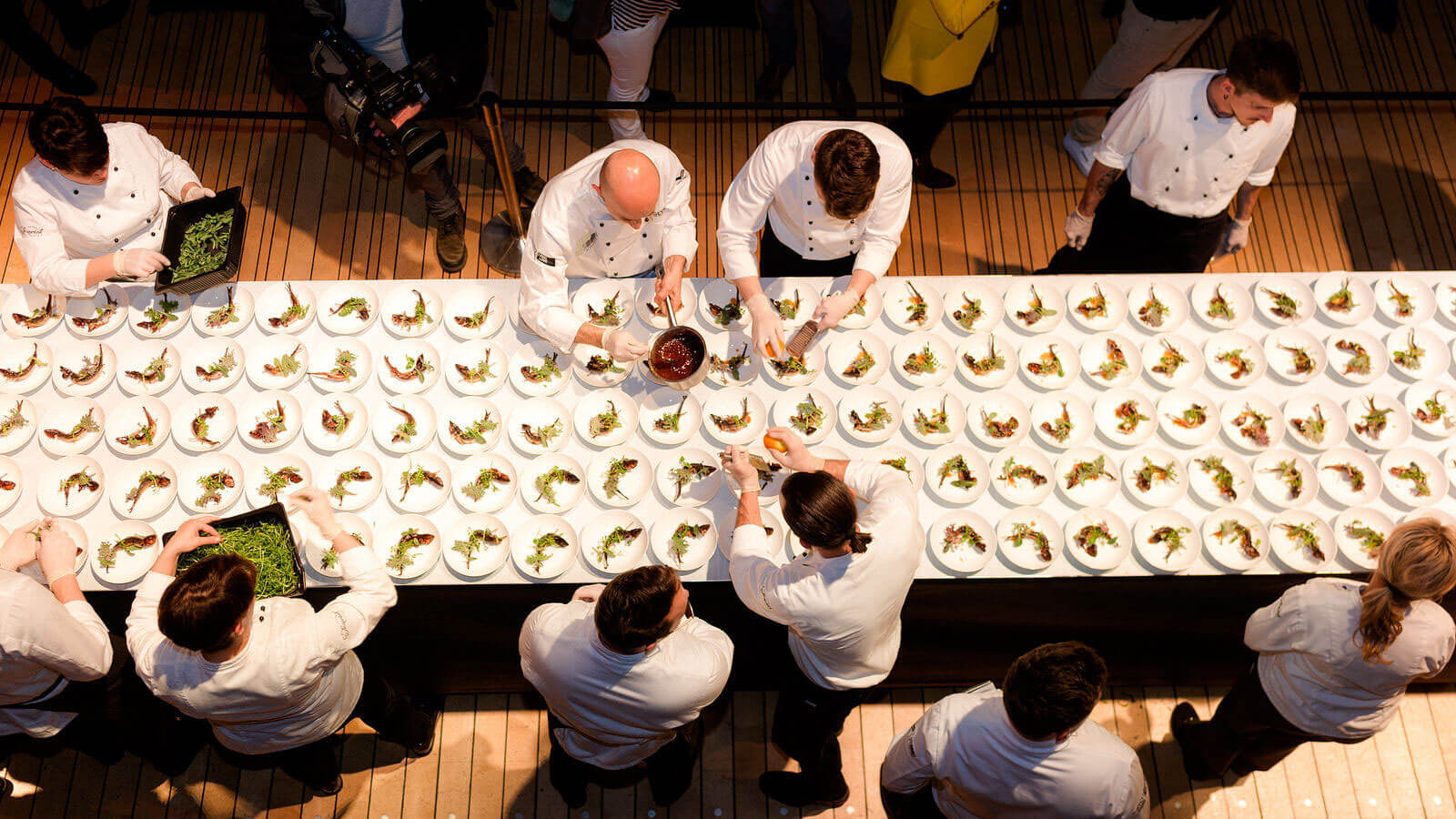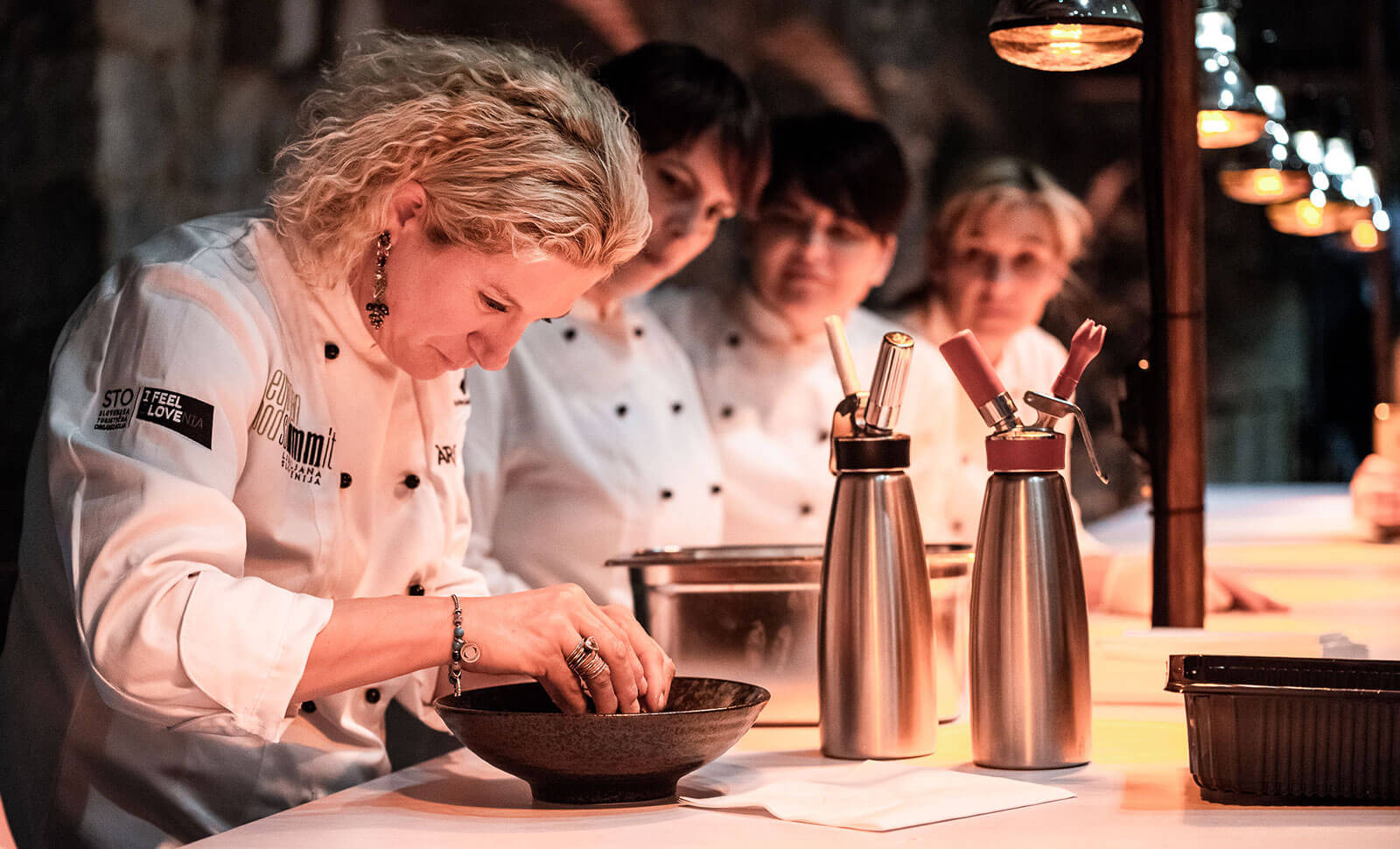
Chefs prepare dishes for the Experience dinner at the European Food Summit 2019 in Ljubljana, Slovenia. (Photo by Dean Dubokovicin & Nejc Pernek)
Slovenia’s top chefs put on a show at the recent European Food Summit in Ljubljana, an event that not only highlighted Slovenia’s culinary talent but shined a spotlight on some of the key issues the industry is facing, such as sustainability.

Afton Halloran, a consultant in sustainable food systems transitions in Denmark, speaks at the summit. (Photo by Dean Dubokovicin & Nejc Pernek)
One of the main goals of the March conference, event organisers said, was to emphasize how “sustainability should become an element of gastronomy, from the source to the plate.” Visiting chefs such as Andreas Caminada of Schloss Schauenstein, a three-Michelin-starred-restaurant in Switzerland ranked 47th on The World’s 50 Best Restaurants list, and Christophe Pelé of two-Michelin-starred Le Clarence in France spoke about sustainable values and the future of food. An “Experience Dinner” at the event, held at Ljubljana Castle, combined performance art and food prepared by chefs including Ana Roš, co-owner at Slovenia’s Hiša Franko, which is ranked 48th on The World’s 50 Best Restaurants list. The “Gourmet Ljubljana Crawl” gave attendees the chance to see the city’s culinary scene first-hand as part of a food tour around town.
According to the Slovenian Tourist Board’s I Feel Slovenia website, Denmark-based researcher Afton Halloran, who specialises in sustainable food systems, spoke at the event about the food of the future and how eating habits will change. In her view, the future means vegetarianism and the inclusion of insects in human diets.
In addition to the theme of sustainability, the conference highlighted borders — namely, the impact that Brexit could have on food importation. It’s unclear what a no-deal Brexit, which could happen as soon as April 12, will mean for food imports and exports.
What conference organisers hope to achieve, they say, is a move away from culinary imperialism and a step toward sustainable gastronomy, “prioritising diversity in palates, approaches, and experiences.”

Ana Roš, co-owner at Slovenia’s Hiša Franko, helps prepare the Experience dinner at Ljubljana Castle. (Photo by Dean Dubokovicin & Nejc Pernek)
